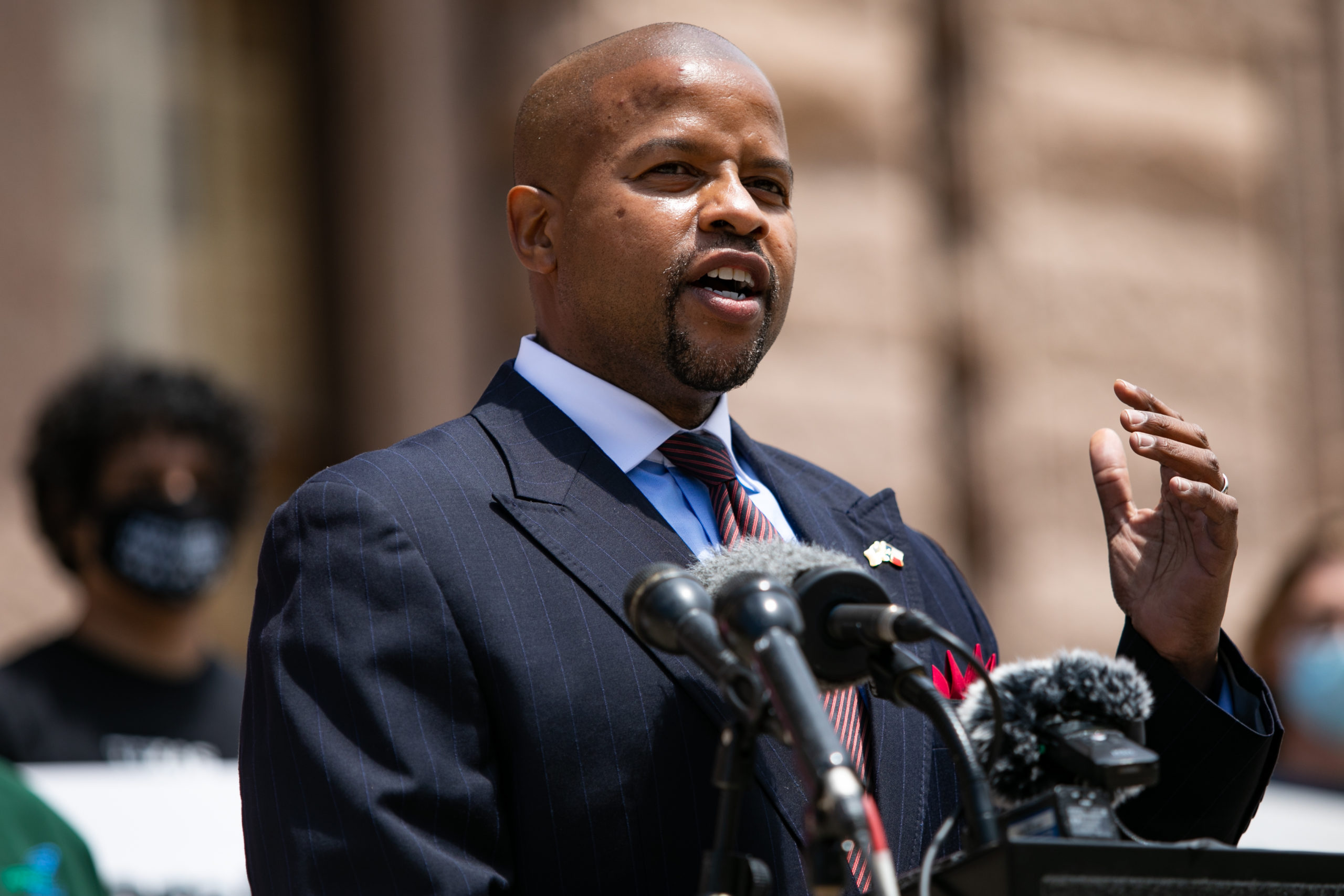Members of the Texas Legislative Black Caucus named their six priorities for the 88th Legislative Session on Tuesday.
These include criminal justice reform, economic development, education, environmental justice, health and human services and voting rights.
The caucus was formed in 1973 and is made up of all the African American lawmakers in the Texas Capitol.
During the last legislative session, the caucus advocated for the CROWN Act, which would prohibit hair discrimination affecting people of color in schools and workplaces. The group also pushed for the George Floyd Act, a sweeping police reform proposal, in 2020.
State Rep. Ron Reynolds, a Democrat serving in District 27 in the Houston area, serves as the chair of the caucus.
Reynolds said the 20-person bipartisan caucus met and voted to decide the group’s six overarching priorities.
The first is criminal justice reform, Reynolds said, pointing to the recent death of Tyre Nichols in Memphis at the hands of five police officers.
Reynolds also pointed to the need to ensure economic growth is benefiting all Texans as another priority.
“We know that there’s often many disparities when it comes to economic issues, and Texas has the ninth largest economy in the world,” he said. “But we know that there are too many African Americans and people of color that aren’t receiving part of their economic development.”
The third priority Reynolds mentioned is making sure there is adequate funding for public schools and historically Black higher education institutions.
“Education is a big equalizer. Making sure that we fully fund our historically Black colleges. Texas Southern University and Prairie View A&M University are two of the largest HBCU’s in the country,” he said. “We’re very fortunate in Texas that we have a $33 billion surplus this session, and we want to make sure that we’re investing into our future by making sure our public schools are strong.”
Reynolds said the caucus is also focused on environmental justice, health care and voting rights.
“Texas continues to lead the nation in the highest number of uninsured, and many of those are Black and brown people. Black women disproportionately die giving birth,” he said. “One of the common denominators is access to health care and not having health care because we don’t have Medicaid expansion. And that’s a big problem.”
Reynolds said that as members of the caucus push for their priorities, they will also get involved in the headline debates at the statehouse this year. He said the group supports the bipartisan effort for property tax relief because it will help people stay in their homes. He said most of the caucus is also behind mental health funding, which he believes has a chance of passing this session.
He said the caucus also plans to push against school vouchers, which allow students to attend private schools using taxpayer dollars.
“We’re overwhelmingly against vouchers because they hurt our public schools,” he said. “We’re going to be very intentional about fighting back on vouchers. So we’re going to be doing everything we can to stop that from passing.”
Reynolds also spoke against Gov. Greg Abbott’s recent warning to state agency and public university leaders that the use of diversity, equity and inclusion initiatives is illegal in hiring.
“I’m really opposed to what Gov. Abbott is doing. We believe that our diversity is our strength and historically, African Americans and other minorities have been locked out. We’ve been excluded. And so we believe that equity is of great part to help embrace our diversity. Texas is a majority-minority state. We’re one of the most diverse states in the entire United States of America,” he said. “So we are going to fight this and this is going to be something that we are going to be very instrumental in opposing and raising awareness to.”
For Texans who want to get more involved in the legislative process, Reynolds recommended making a trip to Austin, if at all possible, to meet with your legislator.
“If you can’t, then see your legislator back in the district. But by all means, weigh in on bills that you’re in favor of and weigh in on bills that you’re against,” he said. “Call your state representative, your state senator, and you can always call your governor or lieutenant governor because they represent everyone – regardless if you’re a Democrat or Republican. The best way to be involved is to know what the issues are and to make your voice heard.”













